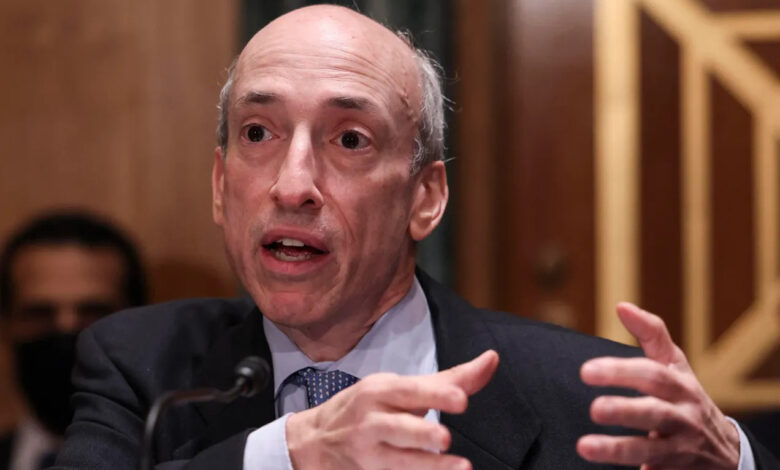SEC Chair Gensler Addresses Bitcoin ETF Irony, Respects Warren and the Law

In an interview with CNBC on Friday morning, Securities and Exchange Commission (SEC) Chair Gary Gensler expressed the irony of launching spot bitcoin exchange-traded funds, noting that it contradicts Satoshi Nakamoto‘s original mission of decentralization. Nakamoto, the pseudonymous creator of Bitcoin, proposed a system for electronic transactions without reliance on trust in the infamous 2008 bitcoin whitepaper.
Gensler pointed out the irony, emphasizing that Nakamoto envisioned a decentralized financial system, while the approval of spot bitcoin ETFs has resulted in centralization. Despite the recent SEC approval of these ETFs, Gensler clarified that it does not imply the SEC’s approval or endorsement of bitcoin. Since their Thursday launch, spot bitcoin ETFs have accumulated over $6 billion in cumulative volume.
Having previously taught blockchain at the Massachusetts Institute of Technology, Gensler acknowledged innovations in the space related to the ledger system, specifically mentioning blockchain technology as an accounting system.
Addressing criticism from Senator Elizabeth Warren, who opposed the SEC’s decision, Gensler expressed deep respect for differing opinions and a commitment to upholding the law.
Elizabeth Warren slammed the SEC on Thursday in a post on X for approving spot bitcoin ETFs, saying:
“The [Securities and Exchange Commission] is wrong on the law and wrong on the policy with respect to the Bitcoin ETF decision. If the SEC is going to let crypto burrow even deeper into our financial system, then it’s more urgent than ever that crypto follow basic anti-money laundering rules.”
When asked about the potential for a spot Ethereum ETF, Gensler said “I look at what we did this week as it’s cabined to one non security commodity called bitcoin like we’ve had gold spot exchange traded products and silver exchange traded products in the past and approved in the past,” Gensler said. “This is cabined just to that one non-security commodity token.”





